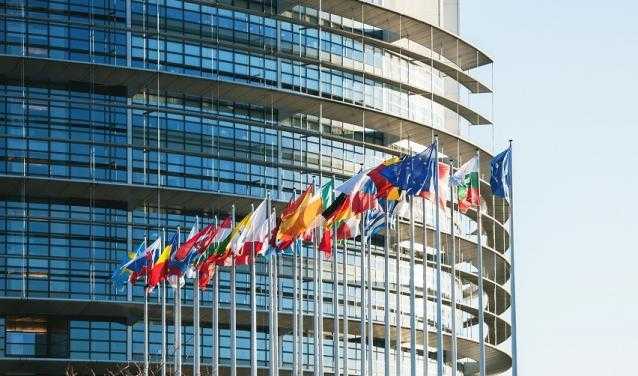Home>Is Europe at the End of its Rope?

17.05.2019
Is Europe at the End of its Rope?
Editorial by Christian Lequesne, researcher at the CERI Sciences Po.
Continual Low Turn-Out Expected Despite Change in Political Landscape
The campaign for the European elections has difficulty getting started in France. The situation is similar in all EU member states. In the United Kingdom, voters supporting Brexit have difficulty admitting that they have to go to the polls, whereas the decision to leave the European Union was adopted by referendum three years ago.
The turnout of the European elections has never been high (43% in 2009 and 2014). 2019 will resemble previous years. Moreover, the idea that European elections will no longer be intermediate national elections, because voters are now focusing on European issues, is far from self-evident. Domestic politics continues to play a crucial role in the European elections. In France, the winner, probably the LREM list or the Rassemblement National, will be considered crucial for the second half of Emmanuel Macron's five-year term and for the 2022 presidential election.
Yet, the EU's political landscape has changed significantly in five years. Eurosceptic parties—mainly far right parties—are in power in several countries: Italy, Hungary, Poland, Austria (as part of a coalition). Their results in elections are comfortable in France, Germany, Denmark and Sweden. These parties seduce the popular electorate, but also the middle classes by addressing a dual concern: economy and identity. The economic argument goes against a EU that has played too much on free market to the detriment of social protection. In continental Europe, the far right Eurosceptic parties all defend the welfare state against the market. The identity variable rejects immigration, particularly non-European immigration, and cultural otherness, both being seen as enemies of national identity. With its ageing demographics, Europe has a deep aversion to risk and is always asking for more protection. A recent study by McKinsey & Co Consulting shows that these trends are similarly observable in the business sector. While a majority of American entrepreneurs consider important to take risks by investing for the future, a majority of European business managers prefers to favour the stability of existing benefits.
Little Hope for Any Real Reform
Whatever the results of the European elections, it will be difficult to implement a real reform of the EU. The Eurozone, the Schengen system and European defence would deserve to be put on a new track, but this is unlikely to happen. For the Eurozone, the Northern European countries that make up the new Hanseatic League will say that Europe must first ensure the good economic convergence of the current euro zone. For the Schengen Agreement on free movement of people, Central European countries and Italy may well consider that the procedures must not be further Europeanised because immigration requires, first and foremost, more effective control at national borders. They will be followed on this point by many French, Dutch and Germans. For European defence, Germany, supported by Poland, Denmark and the Baltic States, will affirm that the United States should not be accused of trying to disengage from Europe and that "strategic patience" should be shown towards Donald Trump and NATO.
Potential Disintegration: A Result of the Status Quo?
It is not clear that the main threat to political Europe is disintegration, as it is sometimes written, even by European integration theorists. Rather, the main threat to the EU lies in the status quo leading to disintegration. For the time being, the internal market has resisted this trend, as the Brexit negotiations have shown. It is because the British have repeatedly proposed breaches of the internal market that the other EU member states have tended to defend it all. Most often out of interest, as the Netherlands and Denmark historically close to the United Kingdom, and sometimes out of principle, as France, a country whose leaders remain committed to the founding narrative of the four freedoms of movement (goods, persons, services and capital) contained in the original European treaties. The day the internal market loses its unity of operation, the European project will falter. This perspective cannot be ruled out if we consider the regular attacks against the idea of free trade that runs through European societies and is carried out by Eurosceptic political parties. Criticism of inequalities in the EU is understandable when one observes the increase in the Gini Index in countries such as Italy or the United Kingdom. But this is not due to the existence of a barrier-free market. The real reason lies in the political inability of European states to correct market externalities, which is very different indeed.
"There is no European Silicon Valley"
This debate may seem a little outdated as the world enters a new economic era that will have to combine environmental protection and the emergence of digital technology. EU is not bad in environmental protection. Environmental awareness is becoming an increasingly important value in EU societies, especially among the younger generations. It translates into an ability to build political debate and norms around the idea of an environmentally friendly economy. EU's entry into the digital economy is more complicated. With the exception of the United Kingdom, which is still expected to leave the European Union, and Estonia, continental countries invest little in this area. There is no European Silicon Valley. On the other hand, there are many young qualified Europeans who go to California to innovate. As with the reform of political Europe, a certain risk aversion explains Europe's technological reluctance. Finding the right balance between protection (of people, nature) and risk-taking (in terms of innovation, controlled immigration, security) is the EU's policy agenda for the future.
Learn more